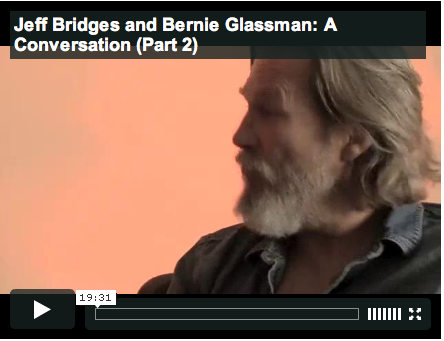
My vow to feed as many hungers as possible includes the physical suffering of food insecurity. According to Jeff Bridges' End Hunger Network, 16.7 million American children -- nearly one in four -- live in households that do not have access to enough nutritious food to lead healthy, active lives. How do we bear witness to this pain? How do we feed these hungry children? How do we feed our hunger for equity and harmony?
The Montague Farm Zen House is teaming up with my friend Jeff Bridges to channel the energy of the entertainment industry and other partners towards achieving President Obama's ambitious goal of eliminating childhood hunger in the U.S. by 2015. We will explore this partnership further at this summer's Symposium for Western Socially Engaged Buddhism.
I started practicing Zen with a deep hunger to find reality. During the fervent days of my early training, I skipped taking my kids to school or eating dinner with my family because I was too busy meditating before and after work. In this way, the monastic model imported from Asia broke up many American families.
As I said in a recent interview, dharma centers that were set up to help people become less egoistic instead became middle class enclaves of self-absorption. Today, the structure of the residence training of the Montague Farm Zen House recognizes that family life is a rich field of practice. The Zen House supports family life for the residents and for the families in need who come to our meals and wellness programs.
Most soup kitchens are set up according to a type of class and gender apartheid that breaks up families and hides those in need from the rest of society. Men and women can't dine together, and even if you're permitted to bring children, you wouldn't want to expose them to all the drugs and violence. We address this problem by creating a space where you can't tell who is coming in need of food and who is coming to serve the food, where family-oriented games put smiles on faces and people from all classes form a community.
When I met Jeff Bridges, I encountered a man who is thoughtful, talented and deeply compassionate. He had founded the End Hunger Network in 1983. Reflected in recent discussions (see video below), we are exploring how the new model of soup kitchen created by the Montague Farm Zen House could contribute to the campaign to end childhood hunger.
Having fought hunger for 27 years, Jeff admits in our taped discussion that it isn't a sexy topic. We want to look the other way and forget about it, but when we remember all aspects of life and all people in society, we become more deeply in touch with reality. Jeff will be coming to the Symposium for Western Socially Engaged Buddhism to do a musical performance and discuss our partnership. The five-day symposium runs from August 9-14 at our headquarters in Montague, Massachusetts.
In the discussion, Jeff I explore how to fulfill one's vocation, be it acting or community service, in a way that is completely involved and that leads to joy and fulfillment, not separation or fatigue. The topic of how to keep giving without burnout will be addressed among the 60 leading activist practitioners, academics and sponsors presenting and leading discussion on Socially Engaged Buddhism. In addition to exploring how to fight poverty, presenters including Bikkhu Bodhi, Jon Kabat-Zinn, Anne Waldman, Peter Matthiessen and Roshi Joan Halifax will explore topics including social enterprise, ecology, prisons and mental health.
